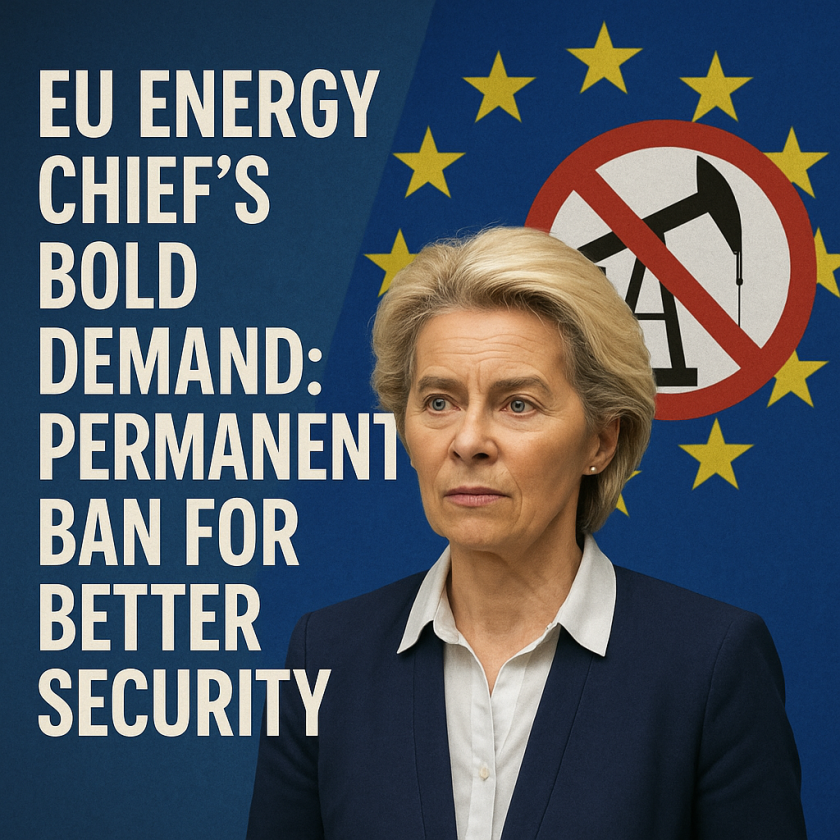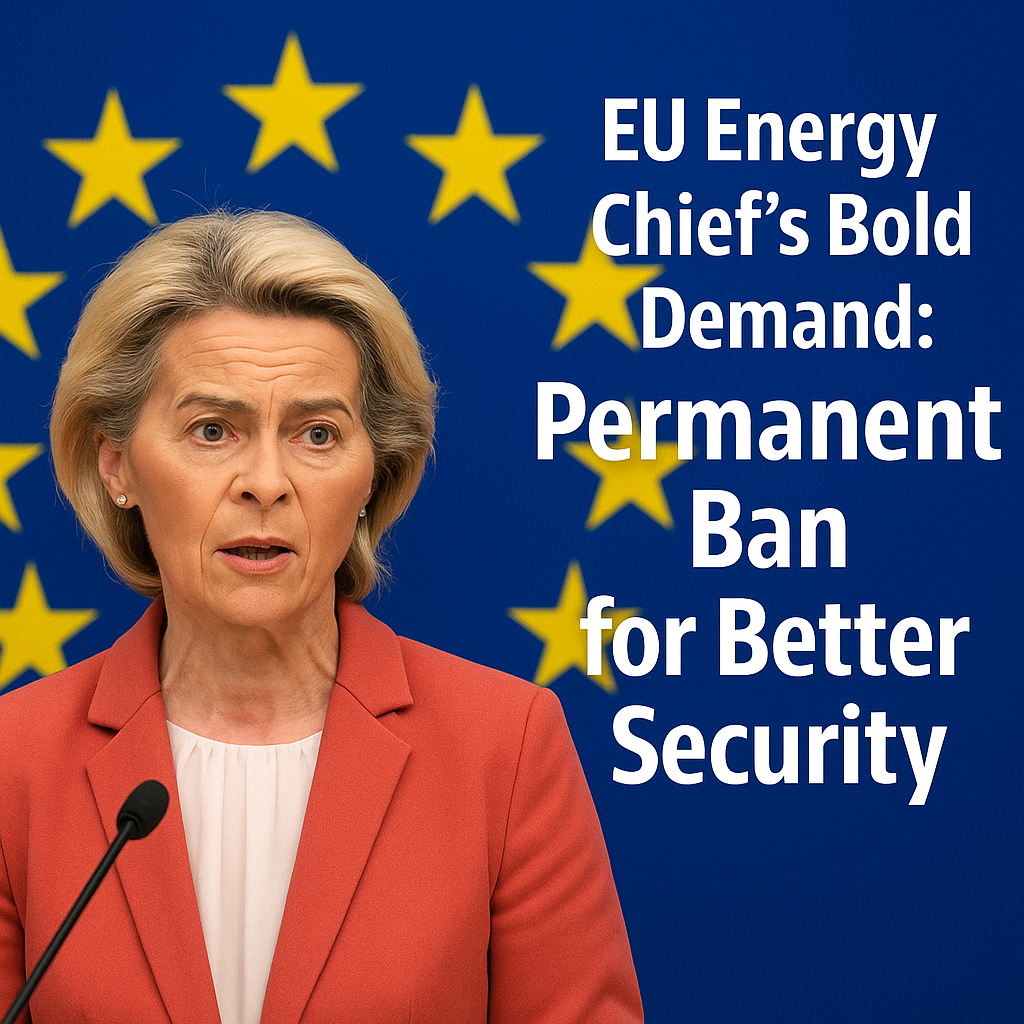EU Energy Chief’s Bold Demand: Permanent Ban for Better Security
EU Energy Chief’s Bold Demand: Permanent Ban for Better Security
The EU Energy Chief’s bold demand for a permanent ban on energy imports from Russia has sparked a dynamic debate, highlighting the complex interplay between energy security, economic stability, and geopolitical strategy. This critical issue not only affects the European Union’s energy policy but also mirrors broader concerns about dependence on foreign energy supplies.
A Shift in Energy Policy

The EU’s energy dependency on Russia has long been a topic of contention. Following Russia’s invasion of Ukraine, a pivotal moment for Europe’s energy landscape emerged. In response, the European Commission, led by Energy Chief Kadri Simson, called for a permanent ban on Russian energy imports. According to Simson, this demand is not just about immediate responses but about long-term strategies to secure Europe’s energy future.
Economical and Strategic Implications
On one hand, proponents of the ban argue that reducing reliance on Russian energy sources is crucial for enhancing national security. The argument is that by diversifying energy imports, the EU can better insulate itself from political coercion and economic manipulation from Russia.
For instance, nations like Poland and the Baltic states have been vocal advocates for an energy embargo, asserting that a complete withdrawal would diminish the Kremlin’s leverage in Europe. A report from Al Jazeera highlighted that Eastern European countries have been leading the charge, seeing this as an invaluable step towards a safer geopolitical landscape.
However, critics warn that an immediate and total ban may lead to unintended economic repercussions. Many EU countries, particularly those with fewer energy alternatives, could face significant economic upheaval. For example, Germany and Italy, who heavily rely on Russian gas, may encounter challenges transitioning to other energy sources without facing higher energy costs. Additionally, as reported by Sky News, energy prices in Europe have already soared, raising concerns about inflation and its impact on citizens.
Navigating the Energy Transition
The potential to source energy from alternative suppliers has been a focal point of discussion. While the securing of new energy contracts with non-Russian suppliers is being pursued vigorously, logistical and infrastructural challenges loom large. LNG imports, renewable energy scaling, and rethinking energy efficiency become critical here.
Reports suggest the EU is enhancing partnerships with countries such as Qatar and the United States to secure liquefied natural gas (LNG). This strategic pivot could buffer against any immediate supply shocks but will require sustained investment in infrastructure and technology.
A Diverging Consensus
Amid the evolving conversation, a contrast in viewpoints within the EU is becoming increasingly apparent. Some member states propose phasing out Russian energy, while others advocate for a more gradual approach, emphasizing the need for a transition period to mitigate potential economic fallout. Ultimately, this divergence reflects the diverse energy landscapes and economic challenges faced by different EU nations.
The complexity of these discussions illustrates that there’s not a one-size-fits-all solution. While a permanent ban may help stabilize energy security in the long-term, its execution must be balanced by careful consideration of economic realities.
Conclusion: Weighing the Benefits Against Risks
The call for a permanent ban on Russian energy imports represents a pivotal moment in European energy policy. This demand highlights a commitment to energy sovereignty and security, yet the path ahead is riddled with challenges. Striking the right balance between long-term strategic goals and short-term economic realities will be essential as the EU navigates this transformative phase.
In summary, while the energy chief’s bold proposal aims at fortifying the EU against future geopolitical threats, a careful and nuanced approach is necessary to ensure that economic stability is not jeopardized in the process. The resolution lies in adopting diversified energy strategies while being mindful of differing national energy requirements and capacities. Thus, the debate continues—reflective of the intricate balancing act that defines Europe’s energy future.






































